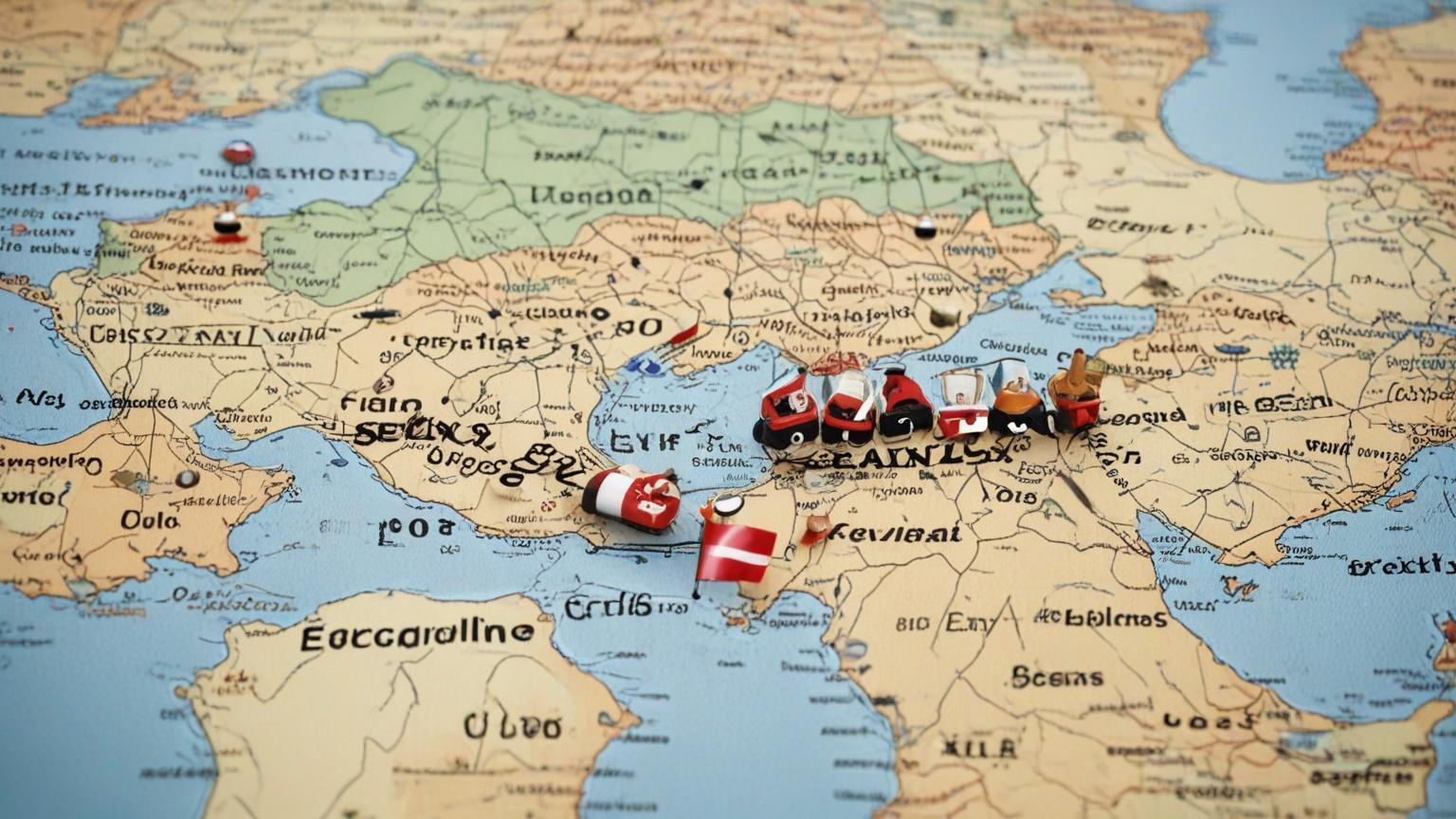In the vast realm of interesting historical oddities, few are as intriguing and bizarre as the concept of micro-nations. These tiny, self-declared entities dot the landscape of human ingenuity. With little to no recognition from actual countries, micro-nations push the boundaries of what it means to establish a sovereign state, often grounded in the whims and eccentricities of their creators.
One of the most famous examples is the Principality of Sealand. Nestled off the coast of England, this former anti-aircraft platform in international waters was taken over by Paddy Roy Bates in 1967. Declaring it an independent state, Bates managed to fend off rivals even as debates around its legitimacy flourished. Sealand endures, with its own flags, currency, and even passports—albeit mostly symbolic, failing to stand up to the scrutiny of international law.
In Italy, the Republic of Rose Island was a wild experiment in sovereignty. In 1968, engineer Giorgio Rosa built a platform just outside Italian territorial waters. Complete with a bar, restaurant, and post office, Rose Island aimed to capitalize on its unique location. The Italian government wouldn’t have it, however. After a very short-lived existence, the Italian navy dismantled the platform, ending this utopian dream but cementing its legend.
When it comes to unusual political structures, the Hutt River Province in Australia was an example of resilience. Established in 1970 by Leonard Casley as a stand against unfavorable grain quotas, the 'principality' thrived for fifty years. Hutt River issued visas and stamps while welcoming tourists curious about its peculiar legal status. In 2020, however, the micro-nation disbanded, swamped by tax debts and external pressures.
Another case that transforms one's curiosity into incredulity is the Conch Republic. In 1982, the authorities in Florida set up a roadblock on the only highway into the Florida Keys, impacting tourism adversely. Outraged, the mayor of Key West declared war against the United States before promptly surrendering, establishing the 'Conch Republic' as a tongue-in-cheek protest and tourist attraction. To this day, it continues as a comedic symbol of independence with a yearly celebration.
Venturing across the Atlantic, we find the Kingdom of Tavolara, an island off the coast of Sardinia, Italy. Claiming to be the smallest kingdom in the world, Tavolara is steeped in myth, tracing back to a tale where the Sardinian king granted its sovereignty to a local family in the nineteenth century. Though the actual rule may be apocryphal, today’s rulers maintain the legend—hosting an annual ceremony to honor its royal past.
These micro-nations often capture the imagination due to their blend of chutzpah and whimsy. Whether as political statements, tourism boosters, or simply quirky dreams, micro-nations symbolize the human desire to carve identity and order out of chaos. It's no wonder then, that they continue to fascinate, housed safely in the legacy of human creative expression.
Yet, these pseudo-states are not without their critics, often dismissed as trivial or purely self-serving. The debate around their true impact on law and society continues, raising questions about the governance, jurisdiction, and the meaning of sovereignty in a globalized world built around defined borders. Whether jest or earnest and despite all odds, these curiosities continue to thrive, weaving their narratives into the tapestry of human history. The longevity of the concept itself suggests an innate human craving for rebellion against the norm and established authority.
As we ponder the existence of these extraordinary micro-nations, we are reminded of the quirks of the human imagination. In the pursuit of individuality and expression, let us also celebrate the audacity of these whimsical realms. Perhaps they reflect a greater truth—a yearning for unfettered freedom and creativity that transcends political boundaries and questions convention.
The uncanny world of forgotten micro-nations

